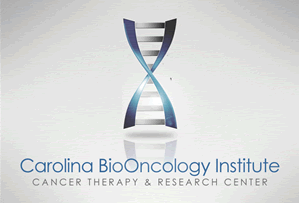MGD007 Combined With MGA012 in Relapsed/Refractory Metastatic Colorectal Cancer
| Status: | Recruiting |
|---|---|
| Conditions: | Colorectal Cancer, Cancer |
| Therapuetic Areas: | Oncology |
| Healthy: | No |
| Age Range: | 18 - Any |
| Updated: | 1/20/2019 |
| Start Date: | June 4, 2018 |
| End Date: | April 2022 |
| Contact: | Susan Brann |
| Email: | branns@macrogenics.com |
| Phone: | (240) 552-8023 |
A Phase 1b/2, Open Label, Dose Escalation Study of MGD007, a Humanized gpA33 × CD3 DART® Protein in Combination With MGA012, an Anti-PD-1 Antibody, in Patients With Relapsed or Refractory Metastatic Colorectal Carcinoma
The primary goal of this study is to characterize the safety, tolerability, and maximum
tolerated dose (MTD) of MGD007 when combined with MGA012. Pharmacokinetics (PK),
immunogenicity, pharmacodynamics (PD), and the anti-tumor activity of the combination of
MGD007 and MGA012 will also be assessed.
tolerated dose (MTD) of MGD007 when combined with MGA012. Pharmacokinetics (PK),
immunogenicity, pharmacodynamics (PD), and the anti-tumor activity of the combination of
MGD007 and MGA012 will also be assessed.
This study is an open-label, Phase 1b/2, dose escalation and cohort expansion study designed
to characterize the safety, tolerability, PK, PD, immunogenicity, and preliminary antitumor
activity of MGD007 and MGA012, administered in combination by IV infusion, in patients with
histologically proven, relapsed/refractory metastatic colorectal carcinoma, irrespective of
the KRAS and MMR status of their tumors.
The study consists of a Dose Escalation Phase to determine the MTD or Maximum Administered
Dose (MAD; if no MTD is defined) of the combination, followed by a Cohort Expansion Phase to
further define the safety and initial antitumor activity of the combination with the doses
established in the Dose Escalation Phase.
to characterize the safety, tolerability, PK, PD, immunogenicity, and preliminary antitumor
activity of MGD007 and MGA012, administered in combination by IV infusion, in patients with
histologically proven, relapsed/refractory metastatic colorectal carcinoma, irrespective of
the KRAS and MMR status of their tumors.
The study consists of a Dose Escalation Phase to determine the MTD or Maximum Administered
Dose (MAD; if no MTD is defined) of the combination, followed by a Cohort Expansion Phase to
further define the safety and initial antitumor activity of the combination with the doses
established in the Dose Escalation Phase.
Inclusion Criteria:
- Histologically proven, relapsed/refractory metastatic colorectal cancer
- Eastern Cooperative Oncology Group (ECOG) performance status 0 or 1
- Measurable disease per RECIST 1.1 criteria
- Participants in the Dose Escalation Phase must have had recurrence, progression or
intolerance to standard therapy consisting of at least 2 prior standard regimens
(containing a fluoropyrimidine plus a platinum analogue and/or irinotecan) for
metastatic disease. Participants in the Cohort Expansion portion will be allowed to
participate after 1 prior standard regimen. Those who are inappropriate candidates for
or have refused treatment with these regimens are also eligible. No more than 5 prior
therapies are permitted. Patients previously treated with MGD007 on Study Protocol
CP-MGD007-01 and who did not develop antibodies to MGD007 while on the CP-MGD007-01
study, may be enrolled. Patients that were previously treated on CP-MGD007-01 will
only be treated on this study once MTD/MAD has been defined.
- Availability of sufficient tumor specimens to enable retrospective determination of
gpA33, CD3, PD-1, and PD-L1 expression
- 30 participants in the Cohort Expansion portion must have lesions that are accessible
for paired biopsies with acceptable clinical risk in the judgment of the investigator.
Exclusion Criteria:
- Symptomatic central nervous system (CNS) metastases. No concurrent treatment for the
CNS disease; no progression of CNS metastases on MRI or CT for at least 14 days after
last day of prior therapy for the CNS metastases; no concurrent leptomeningeal disease
or cord compression
- History of known or suspected autoimmune disease with certain exceptions
- History of prior allogeneic bone marrow, stem-cell, or solid organ transplantation.
- Major surgery, systemic anti-neoplastic therapy, or investigational therapy within 4
weeks
- Radiation therapy within 2 weeks
- Systemic corticosteroids (≥ 10 mg per day prednisone or equivalent) or other immune
suppressive drugs within the 14 days
- History of Grade 3 or greater drug-related diarrhea/colitis during treatment with
checkpoint inhibitors including anti-LAG-3, anti-PD-1, anti PD-L1, or anti-CTLA-4
antibodies
- Clinically significant cardiovascular disease; gastrointestinal disorders; pulmonary
compromise; viral, bacterial, or systemic fungal infections
- History of positive testing for human immunodeficiency virus or history of acquired
immune deficiency syndrome
- History of hepatitis B or hepatitis C infection or known positive test for hepatitis B
surface antigen, hepatitis B core antigen, or hepatitis C polymerase chain reaction.
We found this trial at
4
sites
9801 W. Kincey Ave
Huntersville, North Carolina 28078
Huntersville, North Carolina 28078
704-947-6599

Principal Investigator: John Powderly, MD
Click here to add this to my saved trials
601 Elmwood Avenue
Rochester, New York 14642
Rochester, New York 14642
(585) 275-2100

Principal Investigator: Marcus Noel, MD
Phone: 585-275-8213
Univ of Rochester Medical Center One of the nation's top academic medical centers, the University...
Click here to add this to my saved trials
New Haven, Connecticut 06520
Principal Investigator: Stacey Stein, MD
Phone: 203-737-3472
Click here to add this to my saved trials
Tampa, Florida 33612
Principal Investigator: Richard Kim, MD
Phone: 813-745-6454
Click here to add this to my saved trials